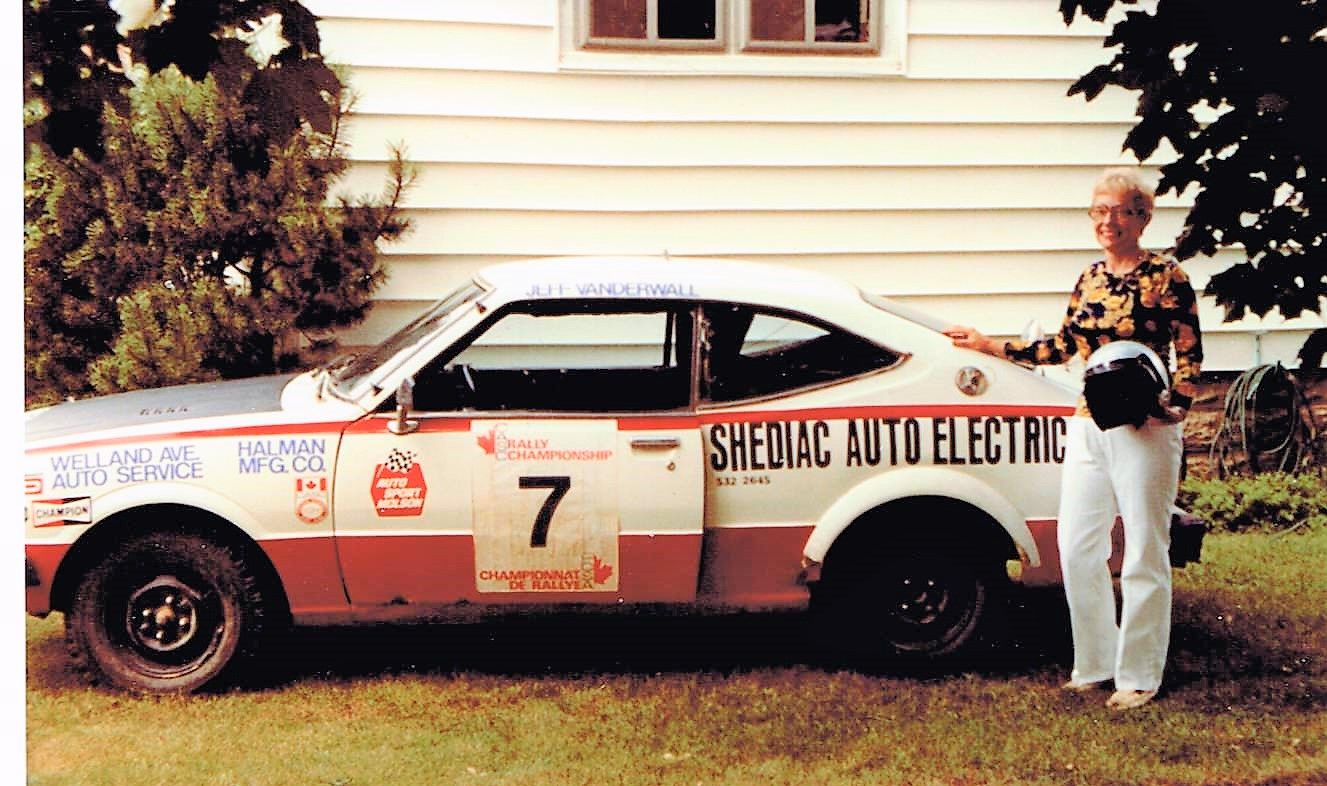It doesn’t take more than a few moments of speaking about motorsports with Robin and Mary Edwardes to realize that racing is in their blood.
“We had very long and successful careers in racing,” understates Robin Edwardes, who was inducted into the Canadian Motorsport Hall of Fame in 2011 as a competitor and significant contributor to the sport of rally racing.
Among the L’Orignal resident’s many wins over five decades of competition were the Canadian Rally Championship Economy title in 1984, two class wins in the Shell 4000, and three Quebec Regional Championship titles as a navigator. His biography on the CMHF website illustrates how the L’Orignal resident not only competed in, but also was responsible for developing many of the rules used in the sport at rally races throughout the world.
“The sport of rallying would not be where it is today without the involvement of Robin Edwardes.” reads the CMHF website. “Not only did he compete in road rallies for over 50 years, he was also instrumental in the rules and procedures which make up the sport, along with setting standards for licenses with the CASC.”
Born in England in 1930, Robin graduated with a mathematics degree from King’s College in London, going to work as a rocket scientist with the Napier motorcar company. Edwardes was motivated to work in rocketry after German V2 rockets bombed London, England during World War 2. After emigrating to Canada, he was employed at Canadair and then Northern Electric in Montreal, working on turbo compound diesel and rocket engines for the aircraft and aerospace industries.
But racing was always his first love – although finding the funds to compete on a regular basis could be difficult.
“Whatever the sponsor provided,” laughs Robin in answer to what kind of car he drove in events.
Edwardes began competing in rally races in the late 1950s, driving or navigating in both competitive and economy events. Relying on the support of sponsors to provide equipment, he drove for a variety of car manufacturers, including Lotus, Simca, Toyota, Volvo, SAAB, Volkswagon and Jeep.
After assisting her husband at the races and working as a race assistant and volunteer for many years, Mary decided it was time to compete herself, driving her Toyota Corolla in rally events from 1974-84 – winning multiple races and season championships in her class.
“I absolutely loved it,” the retired schoolteacher recalls. “That’s why I bought my own car and started my own team.”
Robin turned 90 this past year. He capped his racing career in 1983, winning his class at a national points event in the Eastern Townships.
What Edwardes is most proud of are the changes he brought to the sport over 50 years of competition.
“When I started driving, the navigator was the all-important person,” remembers Edwardes, who is credited with introducing stages to rally racing, which put more onus on driver and vehicle performance and in turn brought more sponsors to the sport. “I was a co-driver, but I recognized the need from a sponsorship point of view to make the car and the driver a little bit more important – and of course it’s that much more spectacular as well.”
Stage racing continues to be the main form of car rally competitions across the world, most notably in European rally racing, which is often shown on television sports channels. When you watch a race, remember that the stages format and many of the rules were developed in the living room of a couple from L’Orignal.
Although retired from competition, Robin and Mary remain involved in the sport of rally racing to this day. Both have been very active over the years as volunteers with Holy Trinity Anglican Church in Hawkesbury. For many years they organized the Music on the Hill free concert series in Vankleek Hill.
“I’m very pleased to have been blessed in so many ways,” Robin says. “God has been very good to us.”

Roger Clark (driver) and Robin Edwardes (co-driver) race a Cortina at the 1966 Shell 4000 Rally.


